|
"The preeminent poet-critic of his generation." — Kirkus Reviews William Logan has been called "the most hated man in American poetry" and the most dangerous poetry critic since Randall Jarrell. Desperate Measures continues the critical fevers of Reputations of the Tongue. Beginning with an exploration of some of Robert Frost's least-known poems, these essays consider Ezra Pound's letters, T. S. Eliot's metaphysical lectures, the lightness of Elizabeth Bishop and the civil tongue of Richard Wilbur, finding in poetry a language that lasts beyond the petty conventions of the age. Added to these thoughtful essays are provocative reviews of contemporary poetry, full of Logan's caustic wit and sharp-eyed scrutiny. Logan's own poetry has been called dazzling, original, brilliant and difficult. Like the distinguished poet-critics of the past, his criticism is an extension of a personal wrestling with language. While criticism of contemporary poetry is often pallid, diplomatic and full of evasive judgments, Logan is willing to raise hackles, to be cheerfully controversial. The often eloquent criticism in Desperate Measures, which views poetry from one end of the last century to the other, is a passionate defense of poetry in an unpoetic time.
Plant-animal interactions have always attracted the attention of evolutionary biologists and field ecologists. Until recently though, the production of fruits by plants, the consumption of fruits by animals (frugivory) and the relevance of this consumption to seed dispersal have attracted less attention than other plant-animal interactions. This is surprising, given that most woody species in many plant communities rely on animals for seed dispersal and, likewise, many vertebrates rely heavily on fruits for nutritional requirements. This book contains chapters adapted from the Third International Symposium-Workshop of Frugivores and Seed Dispersal held in August 2000 in Sao Pedro, Brazil. Widely varying perspectives on diverse taxa are provided. Approaches range from large-scale, community-wide explorations of frugivore influence on plant recruitment to detailed descriptions of frugivory and seed dispersal of single species. Authored by leaders in the field, most chapters include sections on conservation implications and avenues for future research. It will appeal to plant and animal ecologists, as well as those interested in seed science.
Hollywood is currently one of the largest and most profitable sectors of the U.S. economy. In just a few decades, it has transformed itself from a dying company town into a merchandising emporium of movies, games and licensed characters. It is quickly moving even further into cyberspace, virtual reality and digital imaging. Aida Hozic writes of these enormous changes in the film industry from a novel perspective: by tracing shifts in spatial organization of film production from the enclosed worlds of old Hollywood studios through globally dispersed location shooting to digital production and distribution. Hozic's fascinating tale of latter-day capitalism suggests that the physical reorganization of production — across the American economy, but in Hollywood in particular — alters material and conceptual boundaries between work and leisure, public and private, reality and fantasy. Particular economic regimes and forms of spatial organization have specific moral implications, and so the story of Hollywood's cultural production is partly a story of censorship and moral surveillance. Hozic's account of industrial change in Hollywood, and of its attempts at moral control over the production of fantasy, is an illuminating confrontation with the peculiar nature of Hollywood's political authority and of its complex power.
Spinoza's philosophy has an undeserved reputation for being obscure and incomprehensible. But now, in this indispensable collection, Spinoza is portrayed in the manner he deserves — as a brilliant meta-physician who paved the way for an exciting new science. The volume focuses on several important areas, including monism, the concept of conatus, the nature of, and the relation between, mind and body, and Spinoza's relationship to Descartes and Leibniz. The new physics posed difficult questions about the existence and power of God; however, it was a commonplace of 17th-century metaphysics to claim that all force was God's. In his philosophy, Spinoza solves this problem, identifying God with nature. But what happens to individuals after that identification? And what is an individual for Spinoza? How does it act and how are its actions explained? This volume clearly addresses these and other fascinating questions.
Valerius Maximus was an indefatigable collector of historical anecdotes that illustrated both vice and virtue; his Memorable Deeds and Sayings are unparalleled in the breadth of Roman opinions it contains. Hans-Friedrich Mueller illustrates what Valerius Maximus can tell the modern reader about religion, rhetoric and historiography of ancient Rome. A contemporary of Jesus Christ, Maximus' work can also reveal the prevalent attitudes and beliefs of the ruling class that caused the persecution of early Christians.
University Press of Florida publishes scholarly books in the arts, humanities and natural and social sciences. The Press also publishes books of interest and significance for our region and state. The Press publishes in the areas of Latin American and Caribbean studies, literary criticism and theory, philosophy, fine arts, international studies, Southern history and culture, archaeology of the Southeast, and Floridiana. For more information and to view University Press of Florida's catalog, visit its web site at http://www.upf.com |

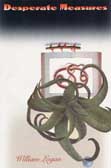 Desperate Measures
Desperate Measures
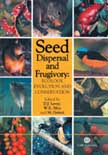 Seed Dispersal and Frugivory
Seed Dispersal and Frugivory
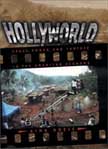 Hollyworld
Hollyworld
 Spinoza
Spinoza
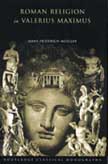 Roman Religion in Valerius Maximus
Roman Religion in Valerius Maximus
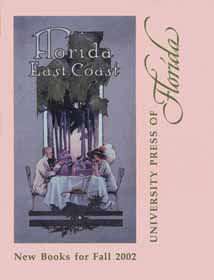 University Press of Florida
University Press of Florida